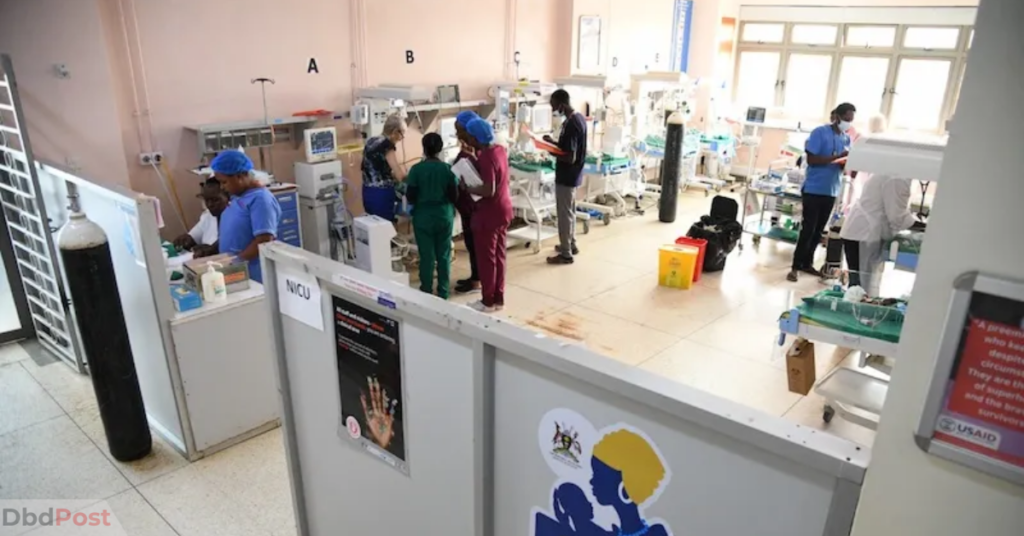On March 17, 2025, Sweden pledged SEK 20 million to support Uganda’s Ebola response. The funding, equivalent to roughly USD 2 million, will be administered through UNICEF.
This aid targets the latest Ebola outbreak caused by the Sudan virus strain.
The outbreak has created urgent public health concerns. It is Uganda’s eighth Ebola outbreak and one of the most concerning in recent years. The virus, known for its high fatality rate, continues to challenge health systems in the region.
So far, Uganda has reported 12 confirmed cases and two deaths. Most cases have emerged in the capital city and nearby districts. Urban spread increases the risk of widespread transmission.
Unlike earlier outbreaks, this one hasn’t remained isolated. It affects densely populated areas like Kampala and its five divisions. Cases have also emerged in districts like Mbale and Jinja.
That urban dynamic complicates containment. Densely populated zones create more pathways for the virus to travel, raising the urgency for rapid intervention.
Sweden responded swiftly. UNICEF will target the funds to meet immediate needs in affected areas. Support will span risk communication, infection control, mental health, and sanitation.
Water, sanitation, and hygiene (WASH) efforts are key to this initiative. These essential services are vital in stopping virus transmission and improving overall public health resilience.
Besides physical health, Sweden’s aid supports mental health and psychosocial programs. Outbreaks often traumatize individuals and communities, and mental health resources help people recover and adapt.
The funding covers five months and will reach Kampala and the affected districts in eastern Uganda. The initiative aims to benefit over 8 million people directly and indirectly.
Sweden’s Minister for International Development Cooperation and Foreign Trade, Benjamin Dousa, emphasized the urgency. He stated that quick international response matters during such outbreaks.
According to Dousa, Sweden is vital as some major donors reduce their support.
The United States recently paused a significant portion of its global health support, which created gaps in funding for health emergencies. Sweden stepped in to help fill the void.
This contribution is part of Sweden’s larger development agenda in Uganda. In 2024, Sweden provided SEK 377 million in development support. SEK 41 million of that was allocated to humanitarian assistance.
Looking ahead, Sweden’s commitment remains strong. A new cooperation strategy for 2025–2029 allocates SEK 1.5 billion to Uganda. A core focus of this strategy is improving the health of vulnerable groups.
Notably, this includes women and girls. The Swedish strategy prioritizes sexual and reproductive health and rights. These areas often suffer setbacks during outbreaks.
Public health experts welcome Sweden’s support. Timely funding can prevent the crisis from further escalating and strengthen local capacity to respond to future outbreaks.
Sweden’s investment aligns with its broader health diplomacy goals. Globally, Sweden allocated SEK 4.3 billion to health and SRHR programs, which reach low—and middle-income countries, including Uganda.
Transitioning from short-term aid to long-term impact is part of the plan. Sweden wants to build systems, not just provide emergency relief. That includes boosting training, infrastructure, and community engagement.
Partnerships with organizations like UNICEF play a key role. UNICEF already has a strong presence in Uganda. It can quickly channel resources where they’re needed most.
Coordination with Uganda’s national government remains essential. Local health ministries oversee disease surveillance and patient care. International support builds on those local foundations.
This outbreak poses unique challenges. Unlike the 2019 or 2012 incidents, today’s context includes faster urbanization. More people live in cities, which increases transmission risks.
Moreover, international travel has resumed after the COVID-19 lockdowns. Mobility adds complexity to containment, making regional and global cooperation even more crucial.
The Sudan virus strain presents additional hurdles. No licensed vaccines for it exist yet. While trials are ongoing, public health measures remain the first line of defense.
Community education is critical. People must understand symptoms, prevention, and when to seek care. Sweden’s support helps amplify these life-saving messages.
Equally important is trust. During outbreaks, misinformation can spread faster than the virus. Reliable communication helps counter fear and stigma.
In that vein, risk communication and community engagement are central pillars of the Swedish-funded programs. Trained workers speak local languages. They address cultural practices that may influence virus spread.
Simple measures save lives. Handwashing stations, protective equipment, and clear information can curb infections. These tools, often taken for granted, are essential in crisis zones.
Sweden’s contribution also has a long-term vision. It’s not just a reaction but part of an evolving partnership. Uganda’s health sector needs both short-term boosts and sustainable investment.
This partnership has already shown results. Past Swedish funding has supported maternal health programs and vaccination campaigns, and communities know and trust these interventions.
Such trust is vital when introducing new public health strategies. Uganda’s health workers often act as bridges between policy and people. Sweden’s funding supports their training and protection.
Furthermore, the collaboration extends beyond government agencies. Local non-profits and community leaders are also key players. Empowering them improves outreach and compliance.
Sweden’s strategy respects local ownership. It focuses on co-creation rather than imposition. That model strengthens mutual accountability and impact.
As the world watches Uganda’s Ebola response, Sweden sets a model for effective global health engagement. The donation goes beyond numbers. It symbolizes solidarity, responsibility, and shared humanity.
While the challenges remain serious, there is reason for hope. Funding like this offers tools, training, and trust. These elements can turn the tide against Ebola.
Uweden’s SEK 20 million contribution is about more than disease control. It’s about saving lives and restoring stability. It’s a reminder that global health is a shared endeavor.
- 107shares
- Facebook Messenger
About the author
Paul Dement is a seasoned journalist specializing in breaking news, national and international stories, reviews, and opinion pieces. With over a decade of experience, he is committed to delivering accurate, up-to-date coverage that helps people stay informed and engaged. Paul earned his Journalism degree from the University of Oklahoma and remains dedicated to covering the stories that truly matter to the global community.





